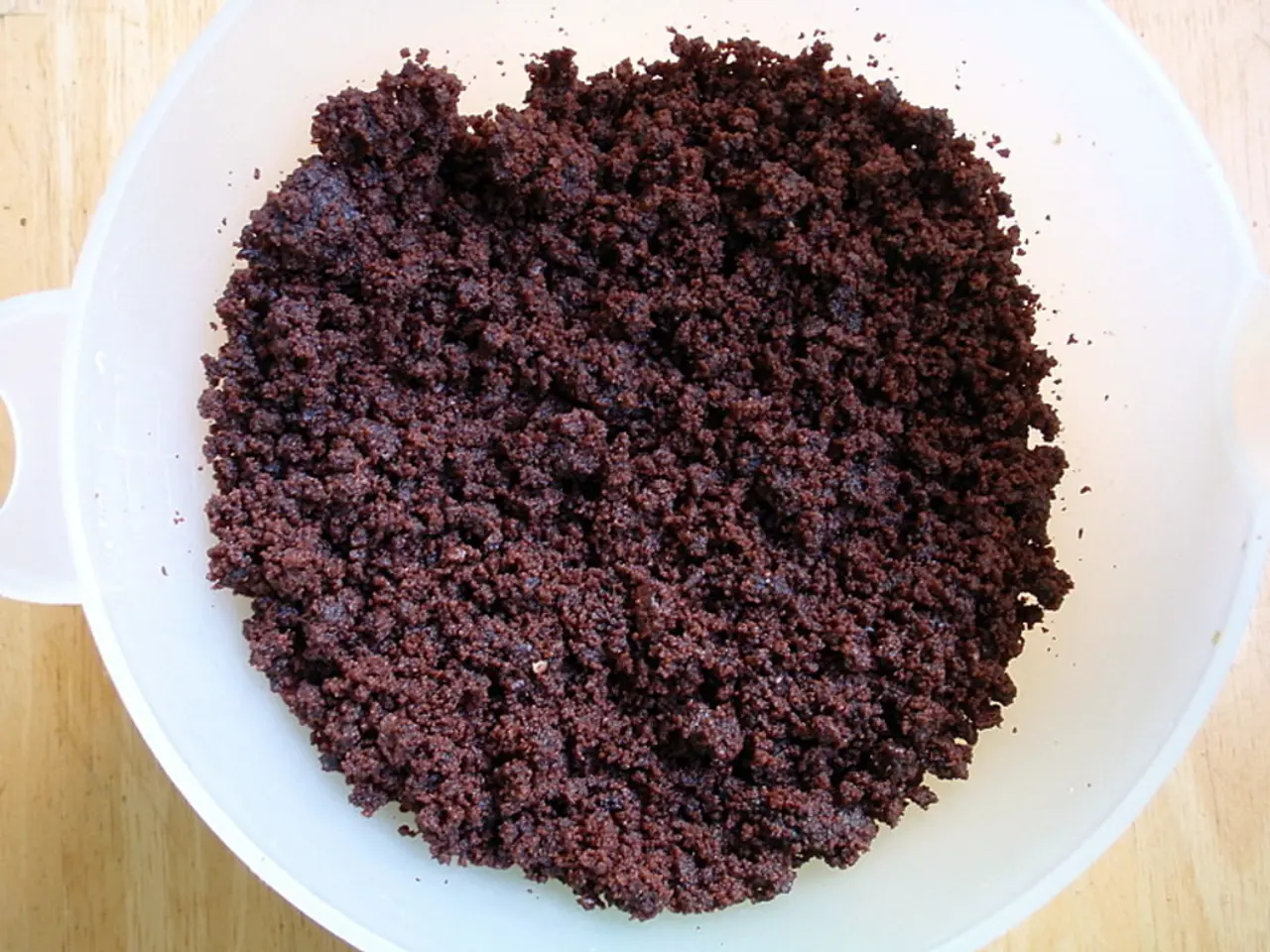Alterations in diet, tactics, and additional methods for lessening inflammation in the gut
Gut inflammation, a condition characterised by symptoms such as abdominal pain, persistent diarrhea, weight loss, fatigue, and in some cases, bloody stools, can have far-reaching effects on one's health. However, with the right strategies, gut inflammation can be effectively managed.
Dietary Changes
Adopting an anti-inflammatory diet, such as the Mediterranean diet, is a powerful tool in reducing gut inflammation. This diet emphasises whole, unprocessed foods like vegetables, legumes, fish, whole grains, olive oil, and nuts, while limiting processed foods, added sugars, red and processed meats, and excessive alcohol.
Incorporating omega-3 fatty acids from fatty fish (salmon, mackerel, sardines) is also beneficial due to their anti-inflammatory properties that support gut barrier integrity and beneficial microbiota. Bone broth, rich in collagen and glutamine, can help repair and maintain gut lining health. Gradually increasing dietary fiber, while avoiding excess that may cause discomfort, promotes microbial health.
A variety of plant foods, nuts, seeds, and legumes, which provide prebiotics that feed healthy gut bacteria, should be included in the diet. On the contrary, limiting ultra-processed foods, which contain refined sugars, unhealthy fats, and additives that promote harmful bacteria and inflammation, is essential. Avoiding excessive alcohol and late-night eating, both of which can damage the gut lining and disrupt circadian rhythms affecting gut health, is also advisable.
Probiotics and Fermented Foods
Consuming probiotic-rich fermented foods such as natural yogurt, kefir, sauerkraut, kimchi, miso, tempeh, and certain aged cheeses can increase gut microbial diversity and reduce inflammation.
Stress Reduction
Stress negatively impacts gut health and inflammation. Managing stress through techniques such as exercise, meditation, or relaxation is crucial. Physical activity also supports a healthy gut microbiome by reducing inflammation and enhancing microbial diversity.
Additional Lifestyle Factors
Practicing time-restricted eating or intermittent fasting can give the gut periods of rest, promoting microbial balance and repair. Coffee consumption has been linked to increased gut microbiome diversity, which may be beneficial, though effects vary by individual.
Sustainable improvement in gut inflammation typically involves consistent application of these strategies rather than quick fixes, with noticeable benefits possibly emerging within days to weeks depending on the individual.
Early diagnosis of gut inflammation is critical to prevent the risk of complications and disease progression. If gut inflammation symptoms persist or worsen, a person should contact a doctor for further examination. Identifying the root cause of gut inflammation can help a person address the cause, such as if a medication they are taking is causing inflammation, they can speak with a doctor about trying an alternative.
Inflammatory bowel disease (IBD), including Crohn's disease and ulcerative colitis, causes chronic gut inflammation. Infections of the gut wall, such as gastritis or enteritis, can trigger gut inflammation. The regular intake of medications, like nonsteroidal anti-inflammatories (NSAIDs) and prolonged use of antibiotics, may increase the risk of gut inflammation.
In conclusion, a combination of targeted dietary changes, the use of probiotics, stress reduction techniques, and a healthy lifestyle can significantly reduce the risk of gut inflammation and promote overall health.
- Adopting an anti-inflammatory diet, such as the Mediterranean diet, can reduce gut inflammation by emphasizing whole foods that limit processed foods, added sugars, red and processed meats, and excessive alcohol.
- Consuming probiotic-rich fermented foods, like natural yogurt, kefir, and sauerkraut, can increase gut microbial diversity and reduce inflammation.
- Managing stress through exercise, meditation, or relaxation is crucial as stress negatively impacts gut health and inflammation.
- Practicing time-restricted eating or intermittent fasting can promote microbial balance and repair in the gut.
- Sustainable improvement in gut inflammation typically requires consistent application of these strategies over time, with noticeable benefits possibly emerging within days to weeks depending on the individual.
- Early diagnosis of gut inflammation through medical examination is critical to prevent complications, and identifying the root cause can help address the issue, such as discussing an alternative medication with a doctor if one is causing inflammation.




